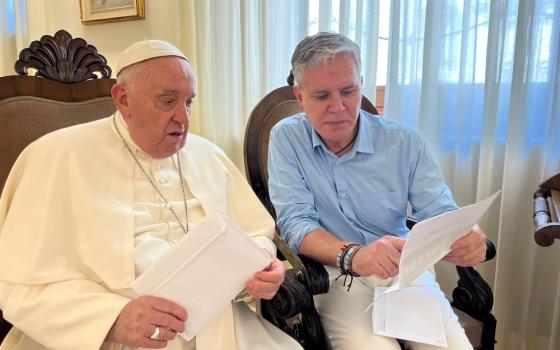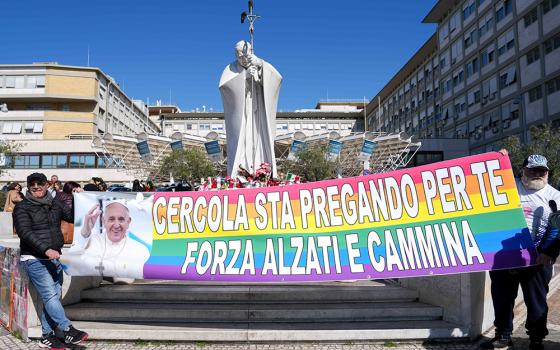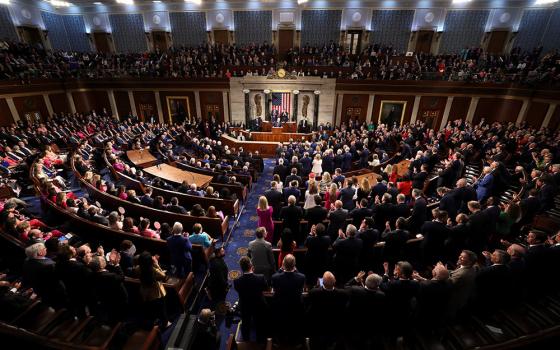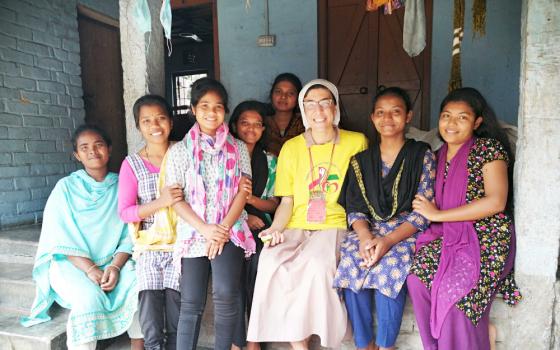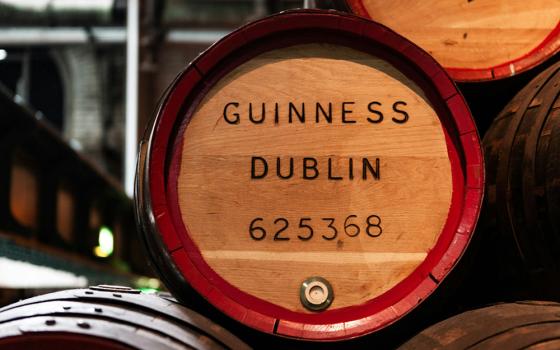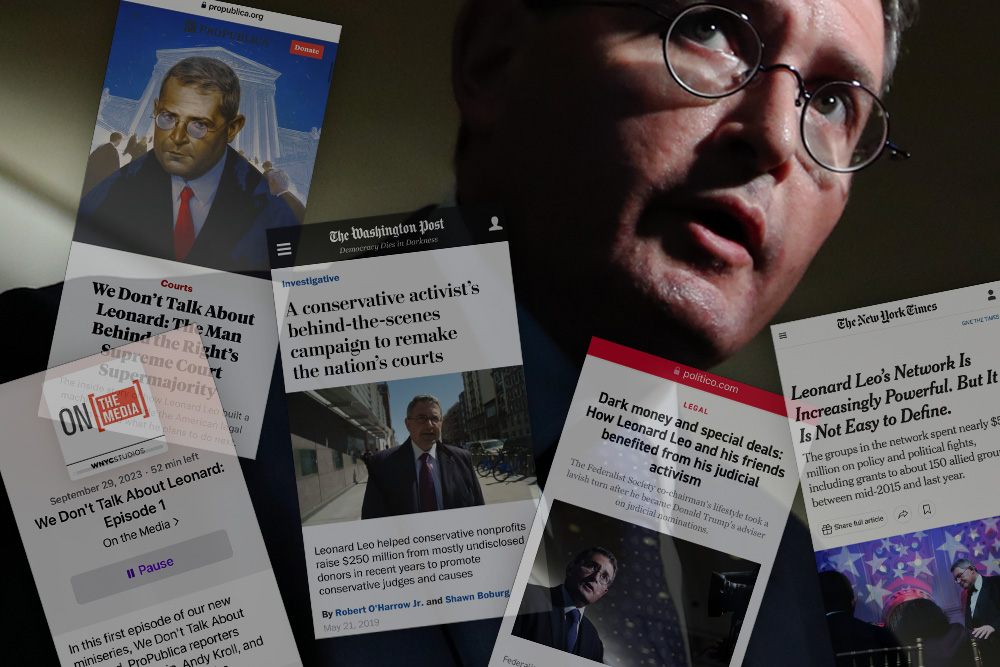
Background photo: Leonard Leo, then executive vice president of the Federalist Society, speaks to media at Trump Tower, Nov. 16, 2016, in New York (AP/Carolyn Kaster). Overlay: Examples of media coverage of Leo (NCR screenshots).
Leonard Leo prefers to be a behind-the-scenes guy. His influence—while significant—has largely been offstage. But now Leo is under a spotlight.
The former executive vice president of the Federalist Society has been the focus of several investigative pieces in ProPublica, The Washington Post, The New York Times and other media outlets over the past few years. In October, he was the eponymous subject of a podcast series, "We Don't Talk About Leonard" (the podcast's name is itself a nod to his attempts to fly under the radar).
On the legal front, Leo is also being scrutinized by the Washington, D.C., attorney general, who is investigating the relationships between Leo's network of nonprofit and for-profit organizations. Most recently, he has been subpoenaed by the Senate Judiciary Committee as part of its probe into the U.S. Supreme Court's ethics controversies.
Most of this spotlight is focused on the money Leo has amassed and subsequently spread around to groups that he is affiliated with, primarily to influence the makeup of the U.S. Supreme Court. Through one of his nonprofits, the Marble Freedom Trust, Leo received in 2021 what is believed to be the largest-ever political donation in U.S. history, $1.6 billion.
According to The New York Times, some 15 groups in Leo's network spent nearly $504 million on policy and political fights between 2015 and 2022. That kind of money attracts attention.
Advertisement
Now questions are being raised about whether Leo simultaneously enriched himself, by moving donations — tens of millions of dollars — from another of his nonprofits, the 85 Fund (previously known as the Judicial Education Project), to the for-profit company CRC Advisors, a Virginia-based political public relations firm that Leo joined in 2020 as chairman and seems to be using to fight a broader culture war. (See main story.)
Investigative journalist Andrea Bernstein was part of the three-person reporting team on the "We Don't Talk About Leonard" podcast, which was published by both ProPublica and NPR's "On the Media." The three-episode series drew on interviews with more than 100 people who knew Leo, as well as thousands of pages of court documents, tax filings, emails and other records.
"We had understood at the outset that he had had enormous influence on the makeup of the Supreme Court," Bernstein told NCR. "But what we didn't really understand until we dove into it is the way in which he has worked for decades to make sure that the right people bring the right cases to the U.S. Supreme Court to produce opinions that are most closely in line with Leonard Leo's conservative thinking."
While prosecutors, senators and journalists are most interested in Leo's ethical and legal associations (especially with Justice Clarence Thomas, a close friend who has been scrutinized for repeated ethical lapses), they are also looking at Leo's relationships to those involved in the development of the Dobbs decision, which overturned Roe v. Wade.
Given the reach of the organizations Leo has been involved in, those who follow the religious and political right believe he will continue to be a major player. Says author John Gehring, "His fingerprints are just everywhere."
Read more about Leonard Leo in NCR's report "Leonard Leo, architect of conservative Supreme Court, takes on wider culture" to learn more about how Leo seeks to expand his efforts.

